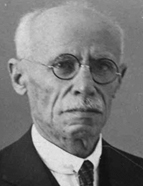

The human reality of Pará and Amazonas would have been the first stimulus for Lúcio de Azevedo as a historian, inviting him to judge, through his cultural and technical training, a concrete situation of trade and the success of a technological culture in a given geographical and human space. His interests are reflected in the scattered writings he prepared for the local press, collected in Estudos de História Paraense [Pará History Studies] (1893), which attracted the attention of the public and cultural circles. He continued his literary and historical work in a Belém do Pará newspaper, collected in Livre Amazonas. Vida Nova [Free Amazon. New Life] (1899). This is the first phase of his cultural life. Borges de Macedo underlines his characteristics as a historian: in terms of questioning, he sought to understand human civilisation ’ s ability to respond to different environments, which is implicit in an attitude of comparative history; in terms of the method of presentation, he set out a problem and brought in documentation and proposals for interpretation, successively and extensively, testing the result until he arrived at a more comprehensive formulation. This process could take 8 to 10 years. To enrich this first phase, which lasted until his return to Portugal in 1900, the relationship with the cultural and political milieu of the Instituto Histórico e Geográfico Brasileiro [Brazilian Historical and Geographical Institute] , with its programmes and debates, the network of contacts with similar European and American institutions and the search for documentation and bibliography, attested to in private and institutional correspondence, must have contributed a great deal.
In Brazil, the cultural debates were different but no less heated: for example, the discussion on the territorial division of Brazil, the criticism of national and foreign historiography on the history of Brazil and the appreciation given to the works of Robert Southey and Councillor Pereira da Silva; or the controversy and stalemate that led to the discussion of a proposal to hold ‘a Universal Exhibition commemorating the discovery of Brazil’ in Rio de Janeiro in 1900.
This work is financed by national funds through FCT - Foundation for Science and Technology, I.P, in the scope of the projects UIDB/04311/2020 and UIDP/04311/2020.
